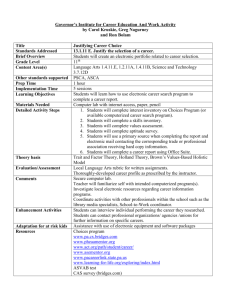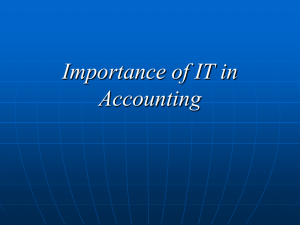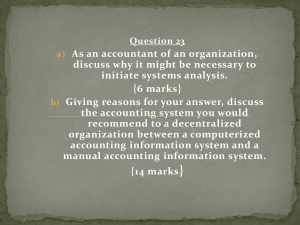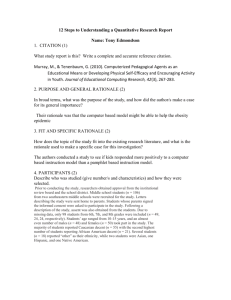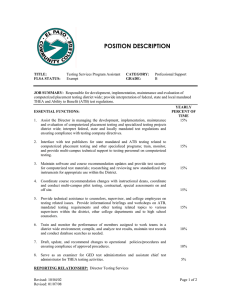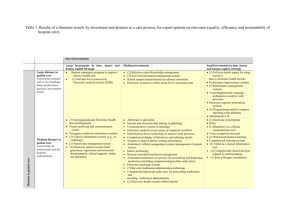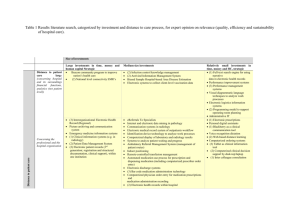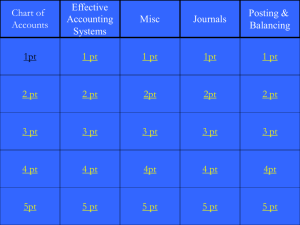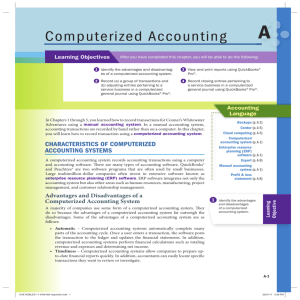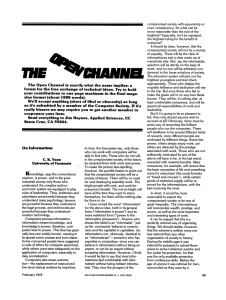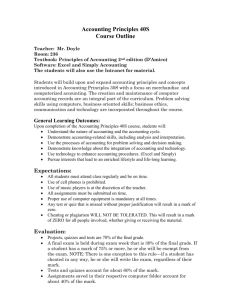45. Advantages and Disadvantages of a Computerized Accounting
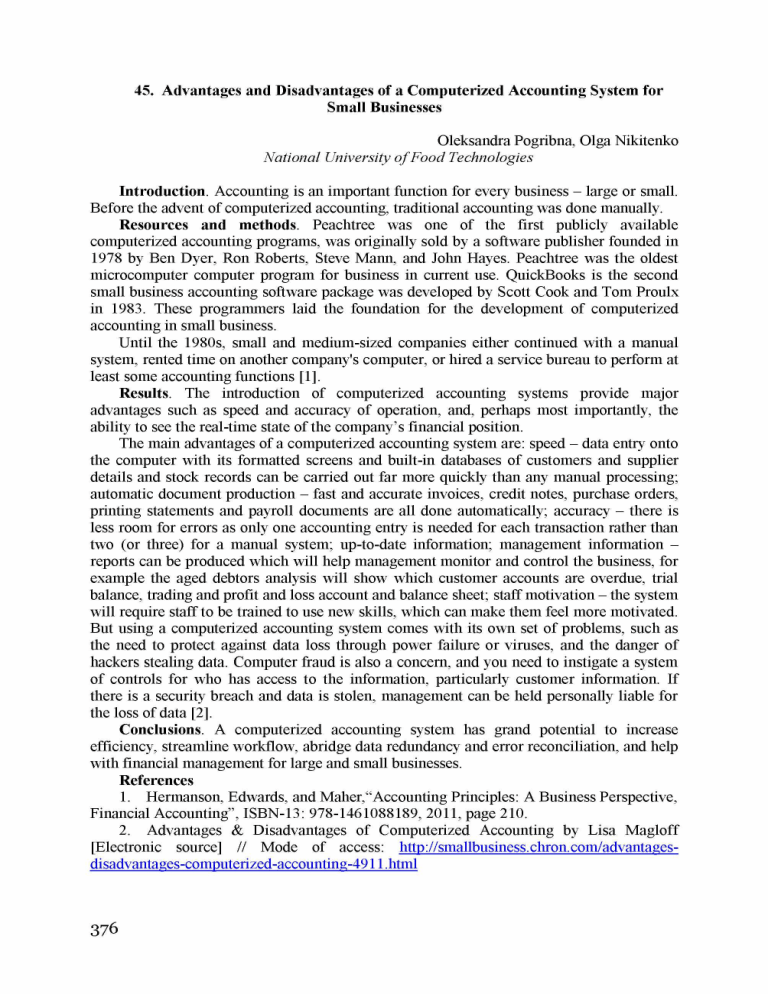
45. Advantages and Disadvantages of a Computerized Accounting System for
Small Businesses
Oleksandra Pogribna, Olga Nikitenko
National University o f Food Technologies
Introduction. Accounting is an important function for every business - large or small.
Before the advent of computerized accounting, traditional accounting was done manually.
Resources and methods. Peachtree was one of the first publicly available computerized accounting programs, was originally sold by a software publisher founded in
1978 by Ben Dyer, Ron Roberts, Steve Mann, and John Hayes. Peachtree was the oldest microcomputer computer program for business in current use. QuickBooks is the second small business accounting software package was developed by Scott Cook and Tom Proulx in 1983. These programmers laid the foundation for the development of computerized accounting in small business.
Until the 1980s, small and medium-sized companies either continued with a manual system, rented time on another company's computer, or hired a service bureau to perform at least some accounting functions [1].
Results. The introduction of computerized accounting systems provide major advantages such as speed and accuracy of operation, and, perhaps most importantly, the ability to see the real-time state of the company’s financial position.
The main advantages of a computerized accounting system are: speed - data entry onto the computer with its formatted screens and built-in databases of customers and supplier details and stock records can be carried out far more quickly than any manual processing; automatic document production - fast and accurate invoices, credit notes, purchase orders, printing statements and payroll documents are all done automatically; accuracy - there is less room for errors as only one accounting entry is needed for each transaction rather than two (or three) for a manual system; up-to-date information; management information - reports can be produced which will help management monitor and control the business, for example the aged debtors analysis will show which customer accounts are overdue, trial balance, trading and profit and loss account and balance sheet; staff motivation - the system will require staff to be trained to use new skills, which can make them feel more motivated.
But using a computerized accounting system comes with its own set of problems, such as the need to protect against data loss through power failure or viruses, and the danger of hackers stealing data. Computer fraud is also a concern, and you need to instigate a system of controls for who has access to the information, particularly customer information. If there is a security breach and data is stolen, management can be held personally liable for the loss of data [2].
Conclusions. A computerized accounting system has grand potential to increase efficiency, streamline workflow, abridge data redundancy and error reconciliation, and help with financial management for large and small businesses.
References
1. Hermanson, Edwards, and Maher,“Accounting Principles: A Business Perspective,
Financial Accounting”, ISBN-13: 978-1461088189, 2011, page 210.
2. Advantages & Disadvantages of Computerized Accounting by Lisa Magloff
[Electronic source] // Mode of access: http://smallbusiness.chron.com/advantages- disadvantages-computerized-accounting-4911.html
376
